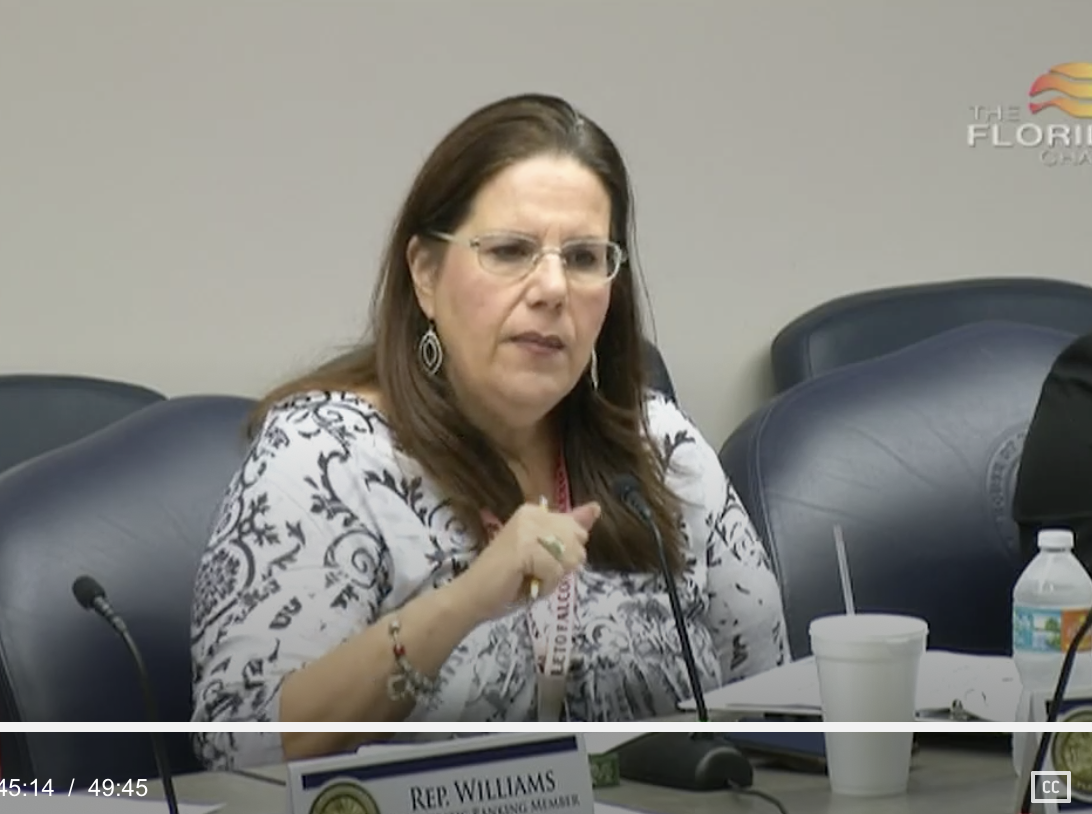Definitely NOT the Best and Brightest
Is it too much to ask that our representatives, sitting on Education committees in Tallahassee, have a basic understand of the Ed policies/programs they have created?
Take Susan Valdes and the Best and Brightest Teacher bonus program. She was one of 6 democrats who voted for the controversial teacher bonus program overhaul last session (SB7070 in 2019). However, at Thursday’s House PreK-12 Appropriations Subcommittee meeting, she didn’t appear to have even a basic understanding of how the revamped bonus system worked.
The only scheduled presentation at the 9/19/19 meeting was the Department of Education’s presentation of its 2020-2021 Legislative Budget Requests. The Department is asking for $284.5 million for Best and Brightest Teachers and Principals (under the heading: “Investing in Great Teachers”) and increased funding to the Office of Early Learning, for Voluntary Pre-K (VPK) and School Readiness services (under the heading: “Serving Students Unique Needs”). Earlier this year, disappointed by low “Kindergarten Readiness” scores, Gov. DeSantis called for efforts, including funding, to improve early childhood education/VPK.

At the conclusion of the FLDOE budget presentation, Rep. Valdes asked what she called a “real question” regarding the Best and Brightest (you can watch at 45:05):
“Help me understand it. The way I understand it is, let’s say you have a D or and F school and you move the needle, you qualify for the Best and Brightest; if you are a C or better school you do not qualify for the Best and Brightest?… and the other question is are certified pre-k teachers eligible for the Best and Brightest?… Help me understand how we are doing the Best and Brightest.”
Rather than allow the FLDOE to explain the legislation Rep. Valdes supported last session, Chair Latvala said he could answer her question. Here is the exchange:
Latvala: “I can actually answer that, if the Department doesn’t mind, since I helped to do that last year. Pre-K teachers are not in the definition of classroom teachers, it’s kindergarten through 12th grade so they were not part of the Best and Brightest.”
Valdez: “Do you think that (including them) would be a possibility, Mr. Chair?”
Latvala: “I mean anything is possible. I could lose a bunch of weight and get a lot more attractive but … so anything is possible, but… that would require me going to the gym and that’s not happening.”
It is beyond disappointing that Valdes voted “yes” on the controversial Best and Brightest program last session, which she clearly does not understand. Here are some basic things that Rep. Valdes and her colleagues should know about the current version of Best and Brightest and VPK.
- Chair Latvala was correct. Best and Brightest language pertained to K-12 teachers, not VPK.
- Best and Brightest is a bonus and, over and over again, teachers have reminded legislators that raises are needed, not bonuses. Raises can be relied upon, year after year. Teachers qualify for mortgages based on their salary, not bonuses. Raises affect teacher pensions. Preschool teachers will feel the same.
- Best and Brightest bonuses are now only offered to teachers whose schools showed improvement in their school grade calculation (i.e. “improved an average of three percentage points or more in the percentage of total possible points achieved for determining school grades over the prior three years”). VPK Schools DO NOT participate in the School Grade system.
- Last year, Valdes and others voted to fund the Best and Brightest bonuses through the Florida Education Finance Program (FEFP). VPKs ARE NOT funded through the FEFP.
- Last session’s bill requires school districts (not the FLDOE) to administer the Best and Brightest program. Most VPK programs are privately owned pre-schools, outside the authority of the school district.
Given all that, we suspect there is, actually, a much greater possibility that Chair Latvala will “lose a bunch of weight and get a lot more attractive” than VPK teachers will be considered for Best and Brightest bonuses.
It is also VERY UNLIKELY that quality public education policy will come out of committees filled with legislators (like Valdes) who have NOT done their homework. Lawmakers and others wanting to learn more about the current Best and Brightest Program can look here or here.
As for Rep. Valdes, in the future, we hope she (and her colleagues on the Ed committees) will try to understand bills AND how they will impact our schools and teachers, BEFORE they vote on them.
